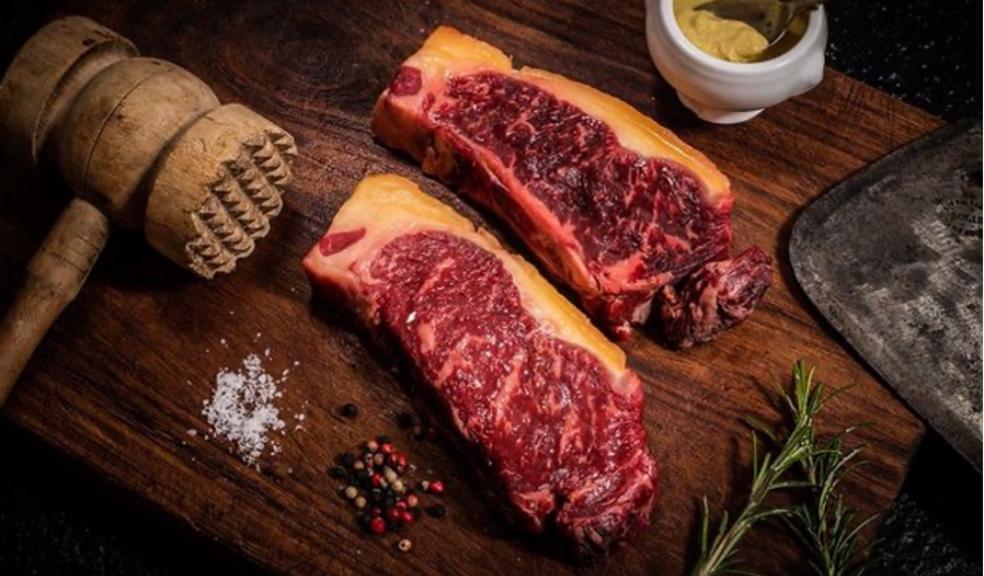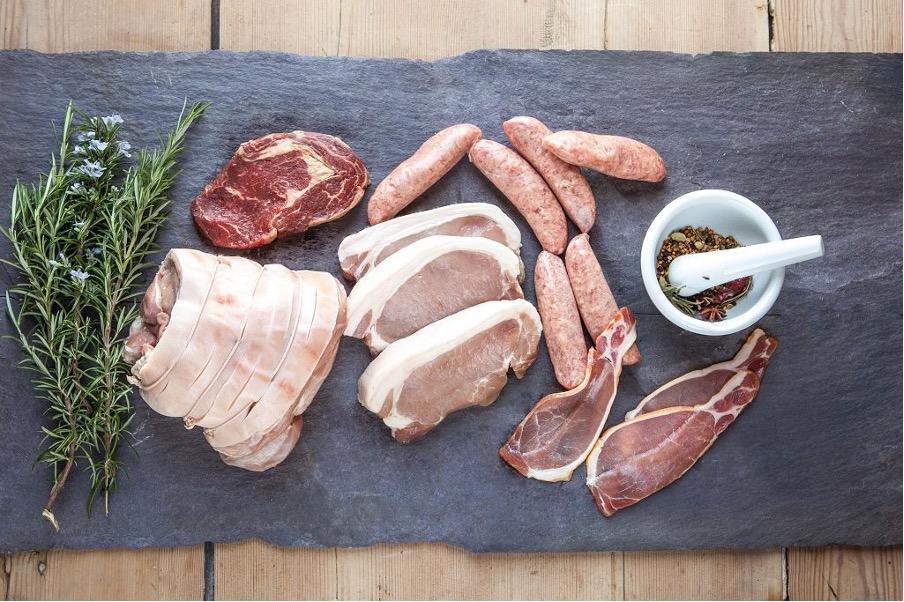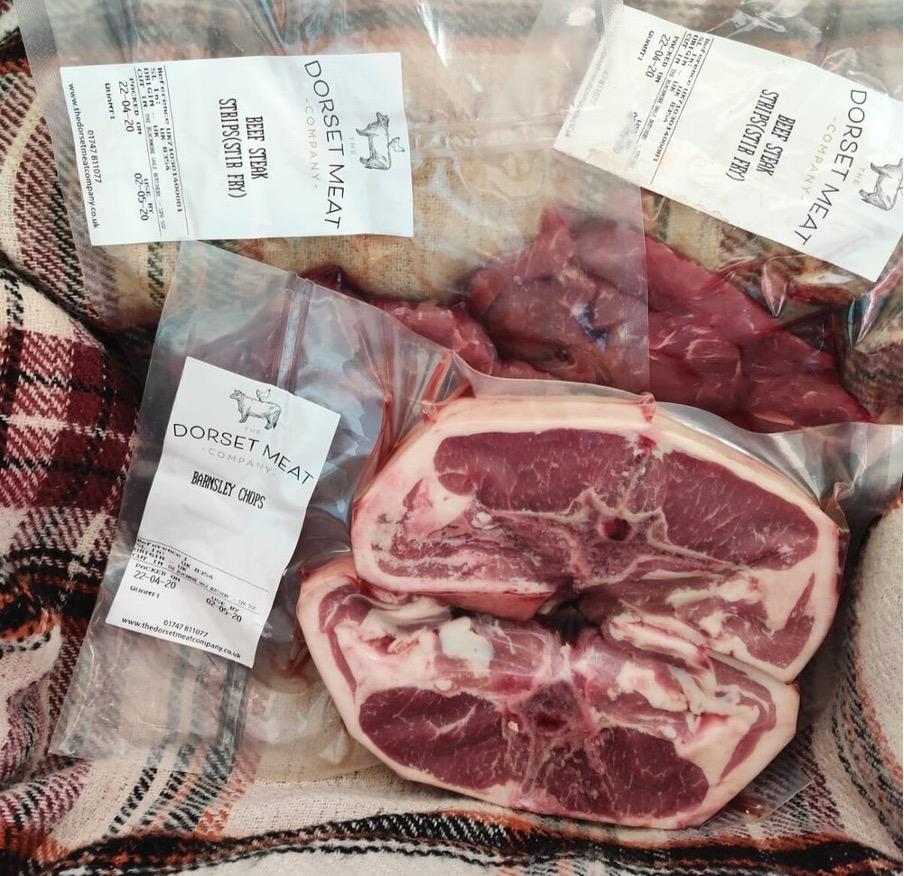
6 ways to get more protein in your diet
It's not just fitness fanatics who need plenty of protein in their diets. Protein is one of the essential building blocks of the human body, used for much more than simply sculpting a six pack. But what exactly are the benefits of protein, and why should you be adding more to your diet?
First and foremost, protein is the miracle healer, and it is this healing ability which makes it so effective at building muscle. By breaking down dietary protein into amino acids, the body creates its own collagen, which is what it uses to heal damage to muscle, skin and bone. A lack of protein will ultimately lead to a lack of collagen in the body, meaning slower healing. Strenuous exercise, such as weightlifting, actually tears the muscles (hence why you get sore after working out), so eating plenty of protein ensures these tears will heal quickly, building new muscle on top of damaged muscle, making them look bigger.

Not only does protein heal old injuries, but it protects us from new diseases by strengthening our immune systems. Our immune system is actually dependent on the availability of protein. In layman's terms, protein makes up the antibodies that attack viruses and bacteria before they have a chance to settle in the body. Eating more protein means your body has the capacity to produce sufficient antibodies, and are therefore equipped to handle the onset of many common diseases.
As well as antibodies, protein plays an important role in producing certain hormones. Protein hormones work like insulin, helping to metabolise glucose and manage blood sugar levels, as well as build muscle. In short, if you're lacking in protein, chances are you're lacking in some essential hormones, which may make you feel more lethargic.
Finally, the consumption of protein has a role to play in the management of body fat. This is mostly because of how the body digests protein: slowly. It takes a lot of energy for the body to break protein down. This slower digestion means that a protein-rich meal will leave you feeling fuller for longer, making you less likely to snack on empty calories between mealtimes. Not only that, but protein has a much higher 'thermic effect' than either fats or carbohydrates. The thermic effect refers to how much energy the body uses to break down food. Your body actually burns a substantial amount of calories just digesting protein! Who knew burning calories could be so easy?
So now you know the many benefits of protein, how can you get more of it into your diet? From snack choices to fresh meat delivery, there are plenty of ways to get more of this miracle nutrient into your body.
Make breakfast protein-rich
Think of breakfast foods. How many of them are starchy carbohydrates? Cereals, toast and bagels are all high in carbs and sugar, but low in protein, meaning breakfast is arguably the most difficult meal to add protein to. This is a shame, as a high-carb breakfast will take no time for the body to digest, meaning you could be feeling hungry again long before lunch time.
The best way to add protein to breakfast is to replace cereal and toast with eggs and/or meat. Even the most high-protein cereal (oatmeal) has only around 6 grams of protein per one cup serving, compared to the 13 grams of high quality protein found in two large eggs. Pair those eggs with a couple of sausages or a side of bacon, or just have them on their own for a filling, protein-rich start to the day.
However, if your simply can't go without your morning helping of toast or cereal, there are still ways to sneak protein into your breakfast. Stir a couple of egg whites into your porridge before heating it up to make it both healthier and fluffier; sprinkle chopped almonds or seeds on top of your cereal; replace sugary jam, honey or marmalade with protein-packed peanut butter; and instead of pouring milk onto your fruit and granola, try creamy Greek yoghurt.
Adding protein into your breakfast is easier than you might think, and is the first step to a healthier diet.
Meat boxes

When trying to add more protein to your diet, eating more meat seems like an obvious solution. But sometimes it's difficult to know whether the meat you buy at the supermarket is of high quality, or whether it's filled with more water than protein.
You want to ensure that if you're bringing more meat to your dinner table, it's the best quality meat you can get your hands on. That's why buying meat online is recommended. Meat delivery companies such as the Dorset Meat Company deliver high quality, ethically produced meat straight to your door as and when you need it, all prepared by master butchers.
All their meat is sourced from 100% grass-fed, free range animals, meaning it is packed full of natural vitamins and minerals, including plenty of protein. You can build your own meat box on their website, or choose one of their pre-constructed boxes, such as the Introductory Meat Box, the Family BBQ Meat Box, or even the Ketogenic Diet Meat Box. Affordable, delicious and nutritious protein is but a click away.
Protein shakes
Adding a protein shake to your breakfast, lunch or post-workout routine is a simple and tasty way to give yourself a protein boost. There are many protein powders available to buy from various health shops, including whey, soy, egg and pea protein.
One scoop of whey powder has about 20 grams of protein, which is more than three large eggs. Put it in a blender with some almond milk, fresh berries and crushed ice (and some almond butter, peanut butter or chia seeds/flaxseeds if you want to add even more protein) for a healthy, delicious smoothie.
Eat your protein first

If you want to cut down on your body fat as well as increase your protein consumption, it's recommended that you try to eat the protein part of a meal before any other. This is because protein increases the production of the gut hormone PYY, which makes you feel full and satisfied, so eating the meat or fish before the vegetables and carbohydrates could well stop you going back for a second helping or dessert.
Add more protein to salads and fruit
Fruit and salads are famously good for you, as they are bursting with the vitamins, minerals and antioxidants we need for energy and a healthy immune system. However, they are also famously rubbish at keeping us full for any length of time, because they are often sadly lacking in protein.
This is easy enough to remedy when it comes to salad. Adding a serving of chicken, turkey, tuna, cheese or chickpeas to a salad will add at least 15 grams of protein, making for a much more satisfying meal.
Fruit is trickier, but there are two protein-rich foods that go well with it: Greek yoghurt, and peanut butter. A couple of scoops of Greek yoghurt added to a handful of juicy berries or some sliced peaches makes for a healthy, summery snack, while spreading peanut butter on sliced apple or pear complements their flavour and fills you up for longer.
Choose protein-rich snacks
Most snacks aren't great sources of protein. Crisps, pretzels and sweets were not made to be healthy, so if you want more protein between meals, they're best avoided. Instead choose protein-rich snacks like cheese and nuts, which are just as tasty and much better for you.
By making a few small adjustments to your diet, you can easily consume more protein, improving your immune system, metabolism and overall health in the process.











